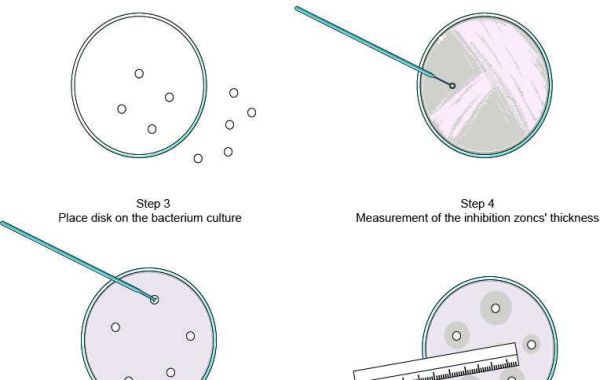As an expert in providing solutions to assist virology and microbiology research, Creative Diagnostics announced the launch of its new Antimicrobial Susceptibility Testing (AST) services. These services are designed to help biotechnology and pharmaceutical researchers detect the sensitivity of test bacteria to antimicrobial drugs.
Antimicrobial susceptibility testing is a laboratory procedure that is primarily used to determine whether antimicrobial drugs have an inhibitory effect on pathogenic microorganisms in vitro. It can also be applied to clinically guide therapeutic drug selection and to understand changes in drug resistance of common pathogens in the region. Knowing the antibiotics to which bacteria are susceptible can shift the choice of antibiotics from empiric to targeted therapy.
Methods for testing drug susceptibility are based on exposing bacteria to antibiotics and observing their response ("phenotypic testing") or specific genetic testing ("genetic testing"). Currently, the major methods used in clinical microbiology laboratories for drug susceptibility testing include paper diffusion, dilution methods (including agar and broth dilution), antibiotic concentration gradient quantification, and automated instrumentation.
Creative Diagnostics now offers Antimicrobial Susceptibility Testing services to help researchers determine which specific antibiotics a particular bacteria or fungus is sensitive to. These new AST services provide guidance on antibiotic treatment options and can be integrated into GLP and GMP environments with full traceability. Creative Diagnostics' experts can provide rapid, objective interpretation of results, and its active/proactive product line development ensures optimal drug-microbe combinations.
Creative Diagnostics' AST services include Phenotypic and Genetic methods. The Phenotypic method test is based on bacterial exposure to antibiotics. The most commonly used test is the paper susceptibility test. A drug-sensitive paper is a filter paper containing a certain amount of antimicrobial drug. Then, using the paper diffusion method, the drug-sensitive paper is placed on the surface of agar inoculated with the test bacteria. The drug in the filter paper diffuses through the agar and the concentration of antimicrobial drug decreases logarithmically as the diffusion distance increases.
Genetic testing detects the presence of antibiotic resistance genes in the bacterial genome using methods such as polymerase chain reaction, DNA chip and loop-mediated isothermal amplification. These assays have the advantage of being direct and rapid compared to phenotypic methods. Meanwhile, Creative Diagnostics can handle a wide range of types, including Aminoglycoside, Beta-Lactam, Cephalosporin, Macrolide, Penicillin, Quinolone, and Tetracycline.
Creative Diagnostics combines infectious disease and analytical expertise to provide customers with the most robust portfolio of antiviral and antibacterial in vitro testing services. With the growing demand for new antiviral and antibacterial compounds to treat infectious diseases, Creative Diagnostics can also help clients test compounds in vitro to determine their potential efficacy in in vivo models.
For more information about Creative Diagnostics and its new Antimicrobial Susceptibility Testing services, please visit https://antiviral.creative-diagnostics.com/antimicrobial-susceptibility-testing.html.
About Creative Diagnostics
Headquartered in New York, Creative Diagnostics is a consulting and experimental service provider specializing in virology and microbiology. The company provides comprehensive solutions to conquer obstacles in virology and microbiology research, from high-security infrastructure provision, biosafety regulation elucidation, to expert viral system assistance.








